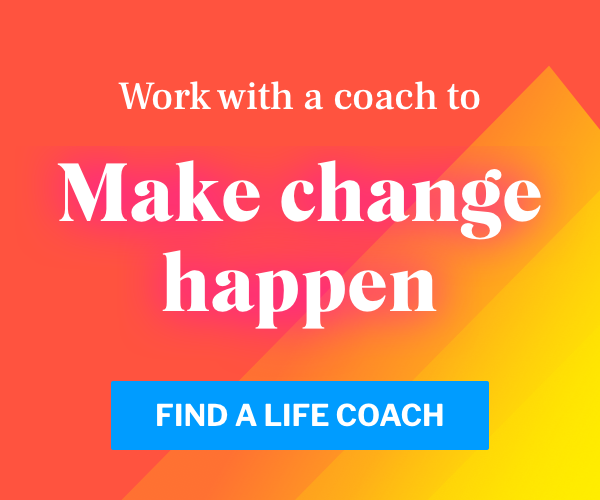The qualities of a good coach are almost universally appreciated in a wide variety of different applications. We’re talking about relationships built on trust. Active listening. Goal setting. Constructive feedback. Shared accountability.
Perhaps if you’re an exterminator and most of your work colleagues are mice, these aren’t particularly impactful skills. For the rest of us, though, they’re incredibly valuable abilities to have – particularly in the world of helping professions like social work, healthcare, and education.
In this article, we take a look at how that connection works and why community helpers should consider a coach’s mentality when working with patients, students, or people on their caseload.
First, Why Community Helpers
One could reasonably argue that the attributes described in the introduction are useful across nearly every career path. With community helpers, however, the relationship is even clearer. When your job is to work directly with other people – particularly those in sensitive or vulnerable situations – you need to be able to establish trust almost immediately.
Not only that, but you also need to establish it quickly. A social worker doesn’t have months to build rapport with everyone on their caseload.
A productive connection needs to form right away. Over time, that relationship may deepen through repetition and familiarity, but the initial collaboration has to begin from a place of trust and clear communication from day one.
This is the same position that any coach finds themselves in.
Yes, they’ll develop chemistry with their team over the course of a season, but on day one, they still need to foster an environment of trust so that the people they are working with can commit to their systems and develop a deep, lasting relationship with the program itself.
If you’re a sports fan, you may never see this work taking place explicitly, but if you know enough about the game, you can sense its fingerprints on every play.
Social workers, teachers, healthcare professionals, and other community helpers can develop faster momentum with the people they serve by committing to a few core skills.
Active Listening
Most people would probably claim – or at least like to claim – that they practice active listening. When pressed for more details on how they do this, the response may be less specific. Active listening is not just the act of paying attention to the person you’re talking to. It involves several specific and clear components:
- Full attention
- Nonverbal communication
- Verbal cues
- An intent to understand
- An empathetic response
People who are committed to active listening strategically weave it into every conversation. They’ll nod to indicate attention to the other speaker.
They’ll paraphrase throughout the conversation to signal that they are listening and to seek deeper clarification on important points.
They enter every interaction with a deliberate intention to better understand the other person and use that understanding as a means of fostering empathy and strengthening the connection.
When you’re involved in a conversation where the other person is employing active listening, you can feel it – literally.
The interaction simply feels deeper and more meaningful. In many community helper careers, there is a constant requirement to speak with people who would probably prefer not to be involved in the conversation at all.
Even patients who need to explain their symptoms and conditions to the attending nurse or doctor are often fatigued by the healthcare experience and may not be naturally inclined to share their thoughts and feelings with everyone who walks into the room.
Active listening establishes trust and develops a connection immediately, making conversations far more productive and fruitful than would otherwise be possible.
Constructive Feedback
Naturally, teachers, social workers, people working in health care, all are forced at different times to provide the people on the receiving end of their service with constructive, sometimes critical, feedback.
It’s often in these situations where tension arises. Some of that will be inescapable, but it’s much easier to tell someone something they don’t want to hear when you’ve already established a connection through active listening and empathetic communication practices.
For instance, being able to get another person to do something difficult or against their wishes is a coaching superpower. It’s also an enormous difference maker in so many community-helper-based careers.
Shared Accountability
At the end of the day, a coach and their team share the same results. This is slightly less true in the case of community helpers than it is in the athletic context.
A teacher, for example, may achieve success with one student and failure with another. Ditto social workers, people in healthcare, and so on. But at the end of the day, you’re working toward the same goal, which means accepting a degree of shared accountability.
Accepting the concept of shared accountability is in and of itself impactful because it encourages a more iterative and collaborative relationship.
Rather than saying, “This is what I’m going to do, and if it doesn’t work, it doesn’t work,” someone with a shared accountability mindset will periodically review what they’re doing and what impact it is having on the other person.
If something isn’t working, they’ll reconsider and revise as needed in the hopes of producing the desired shared result.
Conclusion
At the end of the day, teachers, social workers, and nurses live in a very different reality than that of a coach. The work that they do has a much higher human stake. Nevertheless, there are collaborative concepts that do have a significant overlap. When community helpers can focus on deepening their relationship and strengthening trust with the people they are helping, better results will follow.
The skills that we’ve described in this article are largely soft, but that does not mean that they can’t be improved upon. Putting in daily effort in active listening, for example, will help you get better with time. It’s all about committing to the ideas.
Whether you’re focused on improving in social work specialty areas or boosting your performance as a teacher or nurse, trust will ultimately be at the heart of what you do. The good news is that it’s something you can work on building every single day.



Add comment